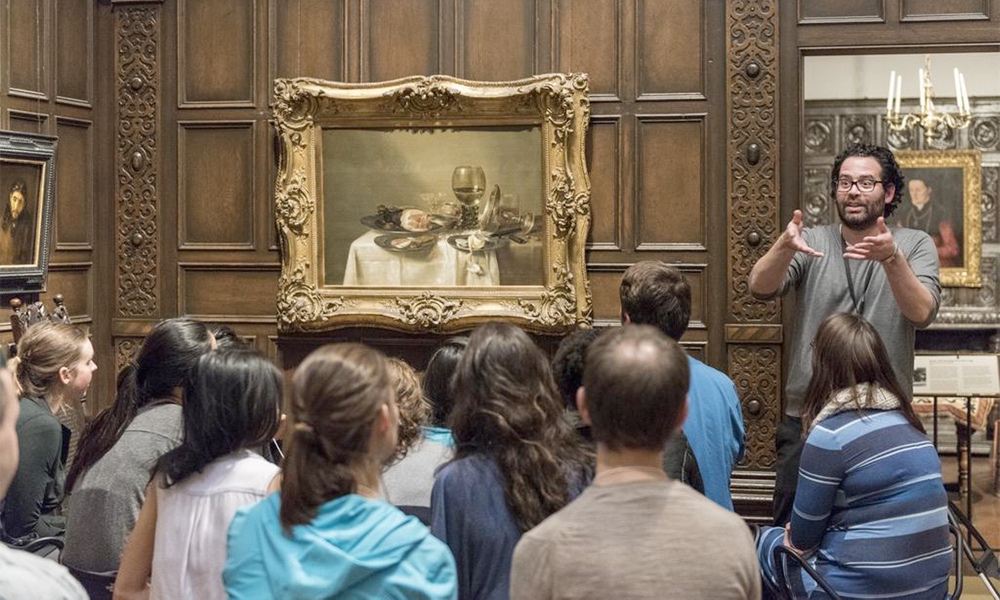Remember the old saying about curiosity killing the cat — and satisfaction bringing him back? Well, neuroscientists at Duke University have learned something more positive about the kinds of satisfaction curiosity offers.
Faced with a task, maintaining an attitude of curiosity, as opposed to stressing out about meeting an urgent goal, will not only help us with our long-term memory — but allows us to take broader actions.
The innovative experiment played out this way: Researchers at Duke's Institute for Brain Sciences recruited 420 adults and instructed them to use their imaginations and pretend to be art thieves for a day. The participants were then assigned to be part of one of two groups: an urgent, goal-oriented group or a curious group charged with checking out the museum to plan how to steal the art.
“For the urgent goal group, we told them, ‘You're a master thief, you're doing the heist right now. Steal as much as you can!’” Alyssa Sinclair, the study's lead author, explained.If you want to motivate people to seek information and remember it for the future, curiosity is a good route. Urgency offers other strategic advantages.
“Whereas for the curious group, we told them they were a thief who's scouting the museum to plan for a future heist,” Sinclair said.
Once the participants had their back stories, the two groups played the exact same Watch out for the Security Guard! computer game. Both groups were scored the same way.
During the game, the participants explored an art museum with four colored doors, representing different rooms, and clicked on a door to reveal a painting from the room, as well as its value. Some rooms had art that was worth more. Participants who grabbed the more valuable pieces, earned valuable bonus money — no matter which group they were in.
The next day, the effects of the differences in mindset were revealed when they took a pop quiz and were asked whether they were able to recognize 175 different paintings. One hundred of the paintings were from the day before and there were 75 new ones. When a participant remembered a painting, they were also asked to recall its value.
Sinclair, a post-doctoral student in Duke's Department of Psychology & Neuroscience, and co-author, fellow Duke psychology and neuroscience graduate student Candice Yuxi Wang, found that:
- Curious group participants who imagined a heist correctly remembered and recognized more paintings and were more likely to remember how much each painting was worth.
- Urgent group participants had a different advantage. They were better at figuring out which doors hid more expensive pieces, and as a result snagged more high value paintings. Their stash was appraised at about $230 more than the curious participants' collection.
“It's valuable to learn which mode is adaptive in a given moment and use it strategically,” the study's co-author, R. Alison Adcock, Associate Professor of Psychiatry and Behavioral Science and Interim Director of the Duke Institute of Brain Sciences, explained. At times there are benefits to being urgently oriented towards reaching your goals, and at other times it can be advantageous to be curious enough to plan a successful approach to attaining them. You just need to tailor your approach to different situations.Participants who grabbed the more valuable pieces, earned valuable bonus money — no matter which group they were in.
Short-term goal-oriented thinking is more important when faced with medical or other emergencies, such as if someone is choking and you need to perform the Heimlich maneuver. Or if you have to immediately grab a child crossing a busy street. Or when one has something specific they need to accomplish, whether it's making dinner or finishing a project.
But if you want to motivate people to seek information and remember it for the future, curiosity is a good route. Curiosity can help encourage someone to understand information or instructions or gather medical information to plan lifestyle changes beneficial to their health. It is also useful when working with a psychotherapist to gain a deeper understanding of oneself.
“Maybe you need to put them in a curious mode so that they can actually retain that information,” Adcock suggested. But, she admits, “It's much harder for people to do since we spend a lot of our adult lives in an urgency mode.”
Here are six ways to stay curious:
- Don't be afraid to ask questions
- Be willing to go down rabbit holes, allowing your curiosity to guide you
- Really listen
- Look carefully at your environment
- Write down observations
- Let go of the need to be right so you can stay open
The study is published in PNAS, Proceedings of the National Academy of Sciences.





